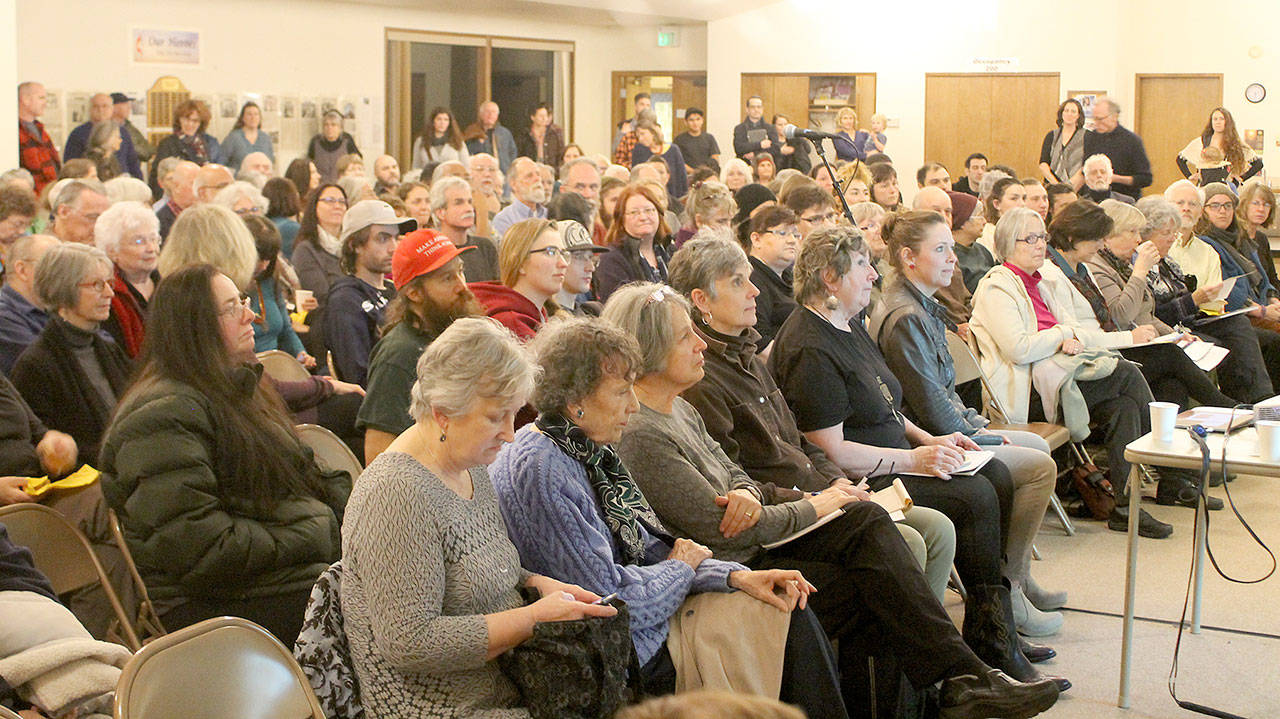A draft inclusive city ordinance to be unveiled and examined by the Langley City Council on Monday night at the Langley United Methodist Church will have more teeth than initially expected.
The ordinance, which was included in the city council’s agenda packet sent to The Record on Thursday afternoon, includes language that explicitly restricts city funds from being used to enforce federal immigration laws. It also instructs police not to “conduct sweeps or other enforcement efforts to detain individuals solely on the basis of a violation of federal civil or administrative immigration laws.” The draft ordinance would also prohibit police from requesting or inquiring about a person’s immigration status and restrict Langley officials from collecting and utilizing information for a registry or database based on religious affiliation or other personal statuses.
The ordinance has passed muster with members of advocacy group Inclusive Langley, whose chief concern was that the ordinance wouldn’t contain language that prohibited city officials from collecting personal information about a person’s religious, immigration or any other status and not use city funds to assist federal immigration authorities.
“This draft ordinance is a big step in the right direction, and contains the two most important protections for our community,” Fran Abel, a former Langley city councilwoman and a 33-year resident of Langley, wrote in an email. “The council should pass it intact, without watering it down. There is tremendous support for clear, strong, local protections for immigrants and Muslim Americans in our community. Now is the time for city leadership to put those protections on the books.”
Also to be included in Monday’s meeting, which begins at 5:30 p.m., is a second reading of an inclusive city resolution and a tally of responses, pro and con, compiled by Langley officials and city council members regarding the sanctuary city topic.
It was previously believed that the draft ordinance would not contain language that would put city officials in jeopardy of violating their oaths of office, a fear that has been questioned by city council members of other sanctuary and inclusive cities, law attorneys and professors. After proposing the ordinance at the end of a March 6 council meeting, City Councilwoman Rene Neff and Mayor Tim Callison agreed that the document would be without language that put the city at legal risk. That appears to have changed. Callison said Friday morning that the changes to the ordinance were an effort to meet Neff’s previous requests to create protections for Langley residents.
Neff was encouraged by the news that the ordinance met her requests and the requests of others.
“I’m pleased to see that happened,” Neff said.
Belinda Griswold, another member of advocacy group Inclusive Langley, said her concerns that the ordinance would not include the two key points aforementioned were alleviated when she examined the ordinance.
“It looks amazing,” Griswold said. “It’s all in there.”
Callison also said there is one caveat to be noted in the ordinance.
“The new sample language includes a key word which is “solely,” meaning we will not endeavor to enforce federal immigration law on our own,” Callison wrote in an email. “It does not restrain communication with the federal immigration authorities and states specifically that it is meant to be consistent with the USC Title 8, Section 1373.”
While the ordinance appears to be a win for advocates, so is the city council’s meeting location change. Around a half dozen proponents of the sanctuary city proposal lobbied on March 6 for the next meeting to be moved to a bigger venue in response to several standing-room only city council meetings. City Councilwoman Dominique Emerson officially requested the meeting be moved on March 10, after which Callison polled the council to see if they would be receptive to the idea. The majority of the council was, Callison said.
Emerson said she would support the sanctuary city ordinance “as long as it has some teeth in it.” She also said the resolution currently before the city council lacks any tangible protections for residents.
“I’m not in favor of the current resolution because it doesn’t say anything,” Emerson said.
While advocates have dominated previous meetings, Councilwoman Ursula Shoudy urged those against the proposal to attend the next city council meeting so both sides of the topic have an equal chance to weigh in.
“Hopefully people come so that all sides can be heard,” Shoudy said in an interview this past week.
In February, Callison threatened to resign if the council adopted a sanctuary city ordinance because he believed it would put him in violation of his oath of office. Callison said Thursday his resignation is still a possibility, one that’s entirely dependent on the ordinance’s language.
“My decision will have to be dependent upon the final form of the ordinance or resolution language, which is unknown at this point,” Callison wrote. “No two resolutions or ordinances — I have probably looked at over 30 by now — that I have reviewed on this issue are alike. They all are unique and all offer different levels of risk and assurance of fealty to one’s oath of office. I cannot definitively state what decision I will make until I see the final form after our council’s deliberations.”


